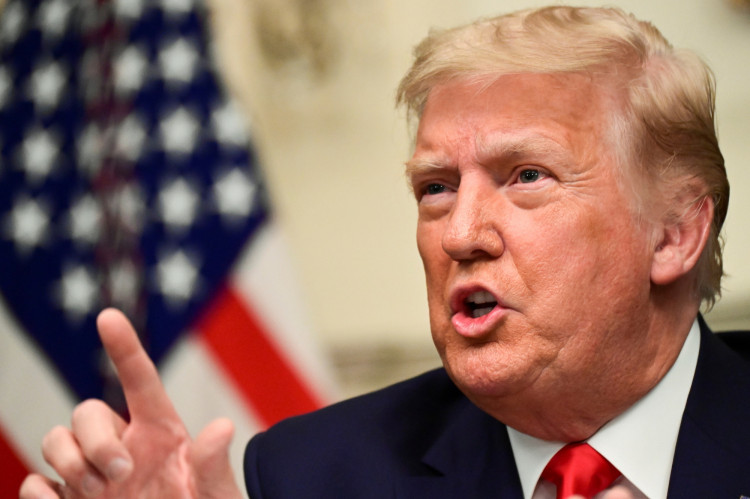Press freedom in the United States has dropped to its lowest level in history, falling to 57th out of 180 countries in the 2025 World Press Freedom Index, according to Reporters Without Borders (RSF). The Paris-based watchdog cited a sharp decline in journalistic conditions under President Donald Trump's administration, which it said reflects an "authoritarian shift" in the U.S. government.
"In the United States, Donald Trump's second term as president has led to an alarming deterioration in press freedom," RSF stated in its annual report, released Friday. "His administration has weaponised institutions, cut support for independent media, and sidelined reporters."
The ranking places the U.S. behind countries such as Uruguay, Gambia, and Sierra Leone. In 2024, the U.S. dropped 11 positions in the index; this year, it slipped another two. RSF cited both political hostility and economic collapse within the news industry as dual forces driving the erosion.
Deputy Commissioner Graham Doyle of the Irish Data Protection Commission also cited the U.S. media's financial distress, noting that "economic hardship is most prevalent amongst local news outlets," contributing to the rise of "news deserts" across large portions of the country.
Anne Bocandé, RSF's editorial director, said a key factor is the financial decimation of independent journalism. "When journalists are impoverished, they no longer have the means to resist the enemies of the press - those who champion disinformation and propaganda," she said.
RSF noted that while global online ad spending reached $247.3 billion in 2024, most of the revenue went to platforms like Google, Facebook, and Amazon rather than media publishers, deepening the crisis.
The Trump administration's move to defund Voice of America and Radio Free Europe/Radio Liberty, along with broader foreign media development aid, was also cited as a destabilizing force for global journalism. Trump's repeated attacks on major U.S. outlets-most recently his legal threats against The New York Times and a lawsuit targeting Paramount over a Kamala Harris interview-have heightened concerns.
The Committee to Protect Journalists echoed the warning, urging U.S. news organizations to form a united front against the "rising tide of threats."
Globally, RSF said the deterioration was the worst it has observed in more than two decades of compiling the index. It found that half the world's countries now offer "poor" conditions for journalism, with just one in four considered "satisfactory." The economic indicator reached a new low, with 160 countries reporting little or no financial stability for media.
Among the largest global declines were Argentina, down 21 places to 87th under President Javier Milei, and Tunisia, which fell to 129th. Israel also dropped 11 places to 112th, with RSF citing its destruction of newsrooms and the killing of nearly 200 journalists in Gaza. "In Gaza, the Israeli army has destroyed newsrooms, killed nearly 200 journalists and imposed a total blockade on the strip for over 18 months," RSF reported.






